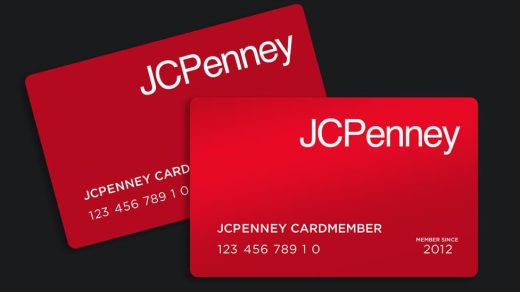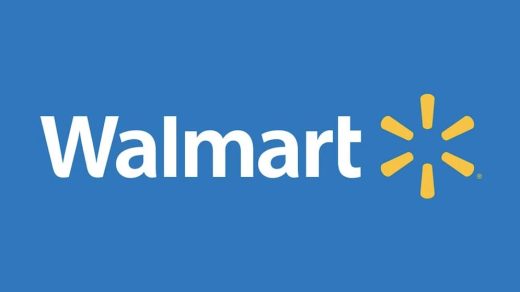In recent months, there’s been a lot of talk about a possible new stimulus check coming in 2024.
Many people who get Social Security, disability benefits, or veterans’ benefits are wondering if they might get some extra money.
This article will look at what’s going on with these rumors about a $2,000 stimulus check.
We know that money is tight for many people right now. Prices for food, gas, and other things we need every day keep going up.
That’s why so many folks are hoping for some help from the government. But it’s important to know what’s true and what’s just wishful thinking.
$2,000 4th Stimulus Check For SSDI, SSI, Low Income 2024 – Check If You Qualify?

In this article, we’ll break down the facts about any possible new stimulus checks. We’ll look at who might get them if they do happen. We’ll also talk about how you can find out if you qualify for any help that’s available right now.
We’ll use simple words to explain everything. Our goal is to make sure anyone can understand this information, even if you don’t know much about government programs. We’ll also include some helpful lists and tables to make things clear.
Remember, it’s always best to get your information from official sources. We’ll tell you where to look for the most up-to-date and correct information about any new stimulus checks or other help from the government.
So, let’s dive in and see what’s going on with these stimulus check rumors for 2024.
Overview of the $2,000 4th Stimulus Check Speculation
There’s been a lot of talk lately about a possible fourth stimulus check worth $2,000. People are wondering if it’s true and if they might get this money in 2024. Let’s look at what we know so far:
Current Status:
- No official plans: Right now, there are no official plans for a new $2,000 stimulus check-in 2024.
- Just rumors: The talk about this check is mostly based on rumors and wishful thinking.
- No approval: The government hasn’t approved any new stimulus checks for next year.
- Social Security Administration (SSA) hasn’t confirmed: The SSA, which handles many benefit payments, hasn’t said anything about new stimulus money.
It’s important to know that just because people are talking about something, it doesn’t mean it’s going to happen. The government would need to pass new laws to give out more stimulus checks.
State Differences:
While there’s no federal stimulus check planned, some states are doing their own thing:
- Colorado: Might give some money to its residents
- California: Has its program for extra payments
- Arizona: Could have some financial help for people who live there
But remember, these state programs:
- Are different from federal Social Security or disability benefits
- Have their own rules about who can get the money
- Might give different amounts than the rumored $2,000
If you live in one of these states, it’s a good idea to check with your state government’s website to see if you might qualify for any extra help.
Why People Are Hoping for More Help:
- Rising costs: Food, gas, and housing are getting more expensive
- Fixed incomes: Many people on Social Security or disability don’t see their income go up much
- Past stimulus checks: The government gave out stimulus checks before, so some hope it will happen again
- Economic worries: Some people are concerned about the economy and want more support
Even though many people would like to see another stimulus check, it’s important to base our expectations on facts, not just hopes or rumors.
Official Updates and Verification
When it comes to important information about government benefits or stimulus checks, it’s crucial to get your facts from the right place. Here’s what you need to know about finding official updates:
Best Source of Information:
The Social Security Administration (SSA) is the main place to look for real updates about any new stimulus checks or changes to benefits like Social Security, SSI, or SSDI.
How to Stay Informed:
- Visit the official website: Go to www.ssa.gov regularly
- Check the news section: Look for any announcements about new payments or changes
- Sign up for email updates: Many government websites let you sign up to get news sent to your email
- Follow official social media: The SSA has official accounts on platforms like Twitter and Facebook
- Be cautious of other sources: Don’t trust information from random websites or social media posts
Why the SSA Website is Important:
- It’s run by the government agency in charge of these benefits
- Information is updated regularly
- You can find details about all types of Social Security programs
- It has tools to help you understand your benefits
What to Look For on the SSA Website:
- Press releases about new programs or changes
- Updates to payment schedules
- Information about cost-of-living adjustments (COLAs)
- Any mentions of new legislation that might affect benefits
Be Careful of False Information:
Sometimes, fake news spreads quickly online. Here’s how to spot it:
- Check if the information is on the official SSA website
- Look for unusual website addresses or strange-looking social media accounts
- Be suspicious of stories that sound too good to be true
- Don’t trust sources that ask you to pay money to get information about benefits
Remember, if there was a new stimulus check coming, it would be big news. You’d hear about it from many official sources, not just rumors online.
By sticking to official sources like the SSA website, you can be sure you’re getting the most accurate and up-to-date information about any potential stimulus checks or changes to your benefits.
$2,000 4th Stimulus Check Details
Even though there’s no official plan for a $2,000 4th stimulus check, let’s look at what it might look like if it did happen. This information is based on how past stimulus checks worked and what people are speculating about:
Basic Details:
| Item | Description |
|---|---|
| Amount | $2,000 (hypothetical, not confirmed) |
| Administered By | Social Security Administration (if it follows past patterns) |
| Initiated By | Federal Government (if approved) |
| Category | Finance / Economic Relief |
| Official Website | www.ssa.gov (for any real updates) |
Important Points to Remember:
- Not real yet: This $2,000 check is just an idea people are talking about. It’s not a real plan.
- No official approval: The government hasn’t said yes to giving out this money.
- Just speculation: People are guessing about this based on past stimulus checks.
- Could change: If a real stimulus check does happen, it might be a different amount or have different rules.
Why People Are Talking About $2,000:
- Round number: It’s an easy amount for people to remember and talk about.
- Past proposals: Some politicians have suggested $2,000 payments before.
- Significant help: This amount could make a big difference for many families.
- Online rumors: The idea has spread on social media and some websites.
What It Might Look Like If It Was Real:
If the government did decide to give out another stimulus check, here’s how it might work:
- One-time payment: Probably a single payment, not a recurring one
- Direct deposit: Money could go straight into your bank account
- Paper checks: For those without bank accounts, a check might be mailed
- Debit cards: Some past stimulus payments were sent on special debit cards
Possible Goals:
If the government ever did approve a new stimulus check, it might be to:
- Help people with rising costs of living
- Boost the economy by giving people more money to spend
- Provide relief during tough economic times
Remember:
- Stay informed: Keep checking the SSA website for real updates
- Don’t count on it: Since this isn’t a real plan, don’t make financial decisions based on getting this money
- Be careful: Watch out for scams or fake news about stimulus checks
While it’s natural to hope for financial help, it’s important to base our expectations on facts. Right now, there’s no official plan for a $2,000 stimulus check-in 2024. If that changes, you’ll hear about it from official government sources, not just online rumors.
Eligibility Criteria for the $2,000 Stimulus Payment in 2024
Even though there’s no real $2,000 stimulus payment planned for 2024, it’s good to understand how eligibility for these kinds of payments usually works. If a new stimulus check ever does happen, the rules might be similar to past payments. Here’s what you should know:
Typical Eligibility Rules:
Based on past stimulus checks and how Social Security benefits work, here are some common eligibility criteria:
- Citizenship or Residency:
- Must be a U.S. citizen, permanent resident, or qualifying resident alien
- Usually needs to live in one of the 50 states, Washington D.C., or U.S. territories
- Income Limits:
- Past stimulus checks had income cutoffs
- People earning less than a certain amount got the full payment
- Those earning more might get less or nothing at all
- Age:
- No specific age limit for most stimulus checks
- But for regular Social Security benefits:
- 65 years or older for full retirement benefits
- Earlier retirement is possible at 62, but with reduced benefits
- Work History:
- For Social Security retirement benefits, need to have worked and paid Social Security taxes
- Stimulus checks usually didn’t require a work history
- Disability Status:
- People receiving SSDI or SSI were often automatically eligible for past stimulus checks
- Must meet SSA’s definition of disability for regular disability benefits
- Dependent Status:
- In past stimulus programs, adult dependents sometimes didn’t qualify
- This could affect college students or adults with disabilities claimed by others
- Social Security Number:
- Usually need a valid Social Security number
- Some past checks allowed exceptions for military families
- Tax Filing Status:
- Past checks often used tax return information to determine eligibility
- Might need to have filed taxes in recent years
Special Considerations:
- Veterans: Those receiving VA benefits were often automatically eligible for past stimulus payments
- SSI Recipients: People getting Supplemental Security Income usually qualified for past stimulus checks
- SSDI Beneficiaries: Social Security Disability Insurance recipients typically were eligible for previous payments
Important Points to Remember:
- These are general guidelines: Based on past programs, not a real 2024 stimulus check
- Rules can change: If a new stimulus check ever happens, it might have different eligibility rules
- Multiple factors: Eligibility often depends on more than one thing (like both income and residency)
- Automatic payments: In the past, many people getting federal benefits got stimulus checks automatically
What to Do:
- Stay informed: Keep checking www.ssa.gov for any real updates
- Keep your info current: Make sure the SSA has your correct address and bank information
- File taxes: Even if you don’t owe money, filing taxes can help you qualify for benefits
- Don’t pay for information: Real eligibility info will be free from official sources
Remember, there’s no actual $2,000 stimulus check planned for 2024 right now. These eligibility ideas are just to help you understand how these things usually work. If the government ever does approve a new payment, they’ll announce the real eligibility rules through official channels.
Understanding the Payment Schedule
If a new stimulus check or benefit payment ever does get approved, it’s helpful to know how payment schedules usually work. Let’s look at how the Social Security Administration (SSA) typically sends out payments for programs like Social Security, SSI, and SSDI. This might give us an idea of how a new payment could be scheduled:
Regular Payment Schedules:
- SSI (Supplemental Security Income):
- Payments usually come on the 1st of each month
- If the 1st is a weekend or holiday, payment comes on the last business day before
- Social Security Retirement and SSDI (Social Security Disability Insurance):
- Payment day depends on your birthday
- This helps spread out payments throughout the month
Birthday-Based Payment Schedule:
Here’s how the SSA usually schedules Social Security and SSDI payments:
| Birthday | Payment Date |
|---|---|
| 1st – 10th of the month | Second Wednesday of the month |
| 11th – 20th of the month | Third Wednesday of the month |
| 21st – 31st of the month | Fourth Wednesday of the month |
Example: If your birthday is on May 15th, you usually get your payment on the third Wednesday of each month.
Special Cases:
- Combined SSI and Social Security: If you get both, SSI usually comes on the 1st, and Social Security follows the birthday schedule
- Holidays: When a payment date falls on a federal holiday, the payment usually comes on the business day before
How Past Stimulus Checks Were Sent:
When the government sent out stimulus checks before, they didn’t always follow the regular SSA schedule. Here’s what often happened:
- Direct Deposit: People with bank info on file usually get payments first
- Paper Checks: Mailed out over several weeks, often based on income levels
- EIP Cards: Some people got prepaid debit cards, usually sent out last
What This Might Mean for a Future Payment:
If a new stimulus check ever does get approved:
- It might not follow the regular SSA schedule
- The government could send out all payments at once or spread them out
- Your regular benefits (like Social Security or SSI) would likely keep coming on their usual schedule
Tips for Getting Your Payment:
- Use direct deposit: It’s usually the fastest way to get payments
- Keep your address updated: Make sure the SSA has your current mailing address
- Check the SSA website: They’ll post updates about any new payments
- Be patient: Even if a new payment is approved, it might take time to send out
Remember:
- There’s no real $2,000 stimulus check planned for 2024 right now
- This schedule info is based on how things usually work, not a new program
- Always check www.ssa.gov for the most up-to-date and accurate information
Understanding how payments are usually scheduled can help you plan better. But remember, any new stimulus payment would be announced officially, with its own set of rules and schedules. Stay informed by checking reliable sources regularly.
Fact-Checking the $2,000 4th Stimulus Check Rumors
By sticking to official information, you can avoid disappointment and make better financial decisions. Let’s look at some more details about these rumors:
Why People Believe the Rumors:
- Past Experiences: Previous stimulus checks make new ones seem possible.
- Financial Stress: Many people are struggling and hopeful for help.
- Misunderstood News: Talks about possible future aid get confused with real plans.
- Wishful Thinking: It’s easy to believe something you want to be true.
Common Misconceptions:
- “I heard it from a reliable source”: Even well-meaning friends can spread false info.
- “It was on the news”: Some websites or social media pages look like news but aren’t.
- “The government owes us”: While many feel this way, it doesn’t mean a check is coming.
- “It’s already been approved”: No new stimulus has been approved by Congress.
Potential Consequences of Believing Rumors:
- Financial Mistakes: Some might spend money expecting a check that never comes.
- Missed Opportunities: Waiting for fake aid might make people miss real help.
- Scam Vulnerability: Believing rumors can make people fall for scams.
- Spread of Misinformation: Sharing false info can confuse others.
What Real Help Looks Like:
While there’s no new stimulus check, other forms of help exist:
- Regular Benefit Increases: Social Security and SSI usually get yearly cost-of-living adjustments.
- Local Aid Programs: Many cities and states have their help for residents.
- Federal Assistance Programs: Things like SNAP (food stamps) or housing assistance are ongoing.
- Non-Profit Help: Many charities offer aid with food, bills, or other needs.
How to Find Real Help:
- Contact Local Government: Ask about aid programs in your area.
- Call 211: This helpline can connect you with local resources.
- Visit Benefits.gov: Find out what federal programs you might qualify for.
- Talk to Social Services: Your local office can guide you to available help.
Protecting Yourself from False Information:
- Use Fact-Checking Websites: Sites like Snopes.com or FactCheck.org can help.
- Look for Multiple Sources: If it’s real news, many official sources will report it.
- Check Dates: Old news about past stimulus checks sometimes gets reshared.
- Be Skeptical: If something sounds too good to be true, it probably is.
What to Do If You Shared False Information:
- Admit the Mistake: It’s okay to say you were wrong.
- Correct It: Let people know the correct information.
- Share Responsibly: In the future, verify before sharing.
- Learn from It: Use it as a lesson to be more cautious with information.
The Importance of Financial Literacy:
- Understand Your Benefits: Know what you’re entitled to and when payments come.
- Budget Carefully: Plan your finances based on what you know, not rumors.
- Save When Possible: Even small savings can help in tough times.
- Seek Financial Education: Many free resources can help you manage money better.
Remember, it’s natural to hope for financial help, especially when times are tough. But it’s crucial to base decisions on facts, not rumors. Stay informed through official channels, and don’t hesitate to seek out real, available assistance if you need it.
Conclusion:
As we wrap up our discussion about the rumored $2,000 4th stimulus check for 2024, let’s recap the key points and look at what this means for you:
Main Takeaways:
- No Confirmed Plans: There are currently no official plans for a $2,000 stimulus check-in 2024.
- Rumors Are Widespread: Many people have heard about this possible check, but it’s not based on fact.
- Official Sources Are Key: The best place for real information is www.ssa.gov and other government websites.
- Be Cautious: Don’t make financial decisions based on rumors about future payments.
What This Means for You:
- Stay Informed: Keep checking official sources for any real updates about benefits or aid.
- Plan Realistically: Base your budget on the benefits and income you know you’ll receive.
- Seek Available Help: Look into current programs that might assist you if you’re struggling.
- Be Skeptical: Question information about benefits that don’t come from official sources.
Looking Forward:
While there’s no new stimulus check on the horizon, it’s important to:
- Understand Current Benefits: Know what aid you’re eligible for right now.
- Watch for Real Changes: The government does sometimes increase benefits or offer new aid.
- Stay Financially Prepared: Try to build savings when possible, even if it’s just a little.
- Engage in Your Community: Local programs and organizations often offer help.
Final Thoughts:
It’s understandable to hope for extra financial help, especially when many people are facing tough times.
The idea of a $2,000 stimulus check is appealing, and that’s why rumors about it spread so quickly. But it’s crucial to separate wishes from reality when it comes to your finances.
Remember, if the government ever does decide to send out new stimulus payments, you’ll hear about it from many official sources.
It would be big news, widely reported by reliable media outlets and government agencies.
In the meantime, focus on making the most of the benefits and resources that are available to you.
Stay informed, be cautious about what you read online, and don’t hesitate to reach out for help if you need it. There are many legitimate programs and organizations dedicated to helping people through financial difficulties.
By staying grounded in facts and actively seeking out accurate information, you’ll be better prepared to handle whatever financial situations come your way.
Your financial well-being is important, and basing decisions on reliable information is one of the best ways to protect it.
Also Check:



